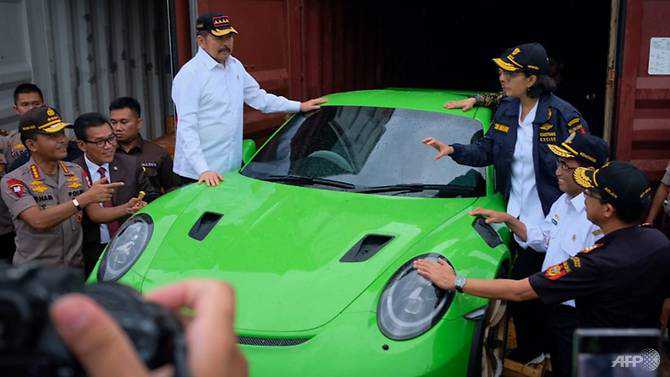Tax trouble: Indonesia's high class car 'owners' cry foul
04 March, 2020

No one was extra surprised to discover that Dimas Prayitno owned a good Rolls-Royce compared to the 21-year-previous Indonesian himself, who was baffled when told he owed US$15,000 in taxes on the luxury vehicle.
But a glance at the building worker's house in a rundown neighbourhood quickly convinced officials that Prayitno was the most recent victim of tax evasion by among Jakarta's wealthy elite.
Rampant taxes dodging costs Indonesia vast amounts of dollars in lost earnings annually and it has taken on a renewed urgency as Jakarta techniques to pass a raft of Bills targeted at revving up Southeast Asia's biggest economy and adding millions of poor to the center class.
"I was shocked and asked them 'what car'?" Prayitno told AFP about his visit from tax officials.
"How could I afford a car when you see me personally surviving in a house such as this?"
Prayitno - whose best pay is about 150,000 rupiah (US$10) a day - afterwards discovered he'd been duped by a former boss who took his federal government ID cards ostensibly for the best purpose.
But instead, the employer registered his extravagance car in Prayitno's brand to dodge taxes.
About 350 Rolls-Royces, Ferraris and other top-end cars in Indonesia's capital - punctuated by a yawning divide between rich and poor - are improperly listed in the name of low-income persons like Prayitno, the tax agency said.
CARS, NOT BRICKS
But it's simply a fraction of the tax evasion trouble.
In December, the CEO of state-owned airline Garuda Indonesia was sacked after allegedly smuggling a Harley-Davidson motorbike and expensive bicycles into the country on a professional plane.
He was accused of using a subordinate's brand on import papers in order to avoid detection - and taxes.
Days in the future, Indonesia's customs workplace said it had foiled a separate plot to smuggle a large number of luxury autos and motorbikes found in mislabelled delivery containers to dodge a lot more than US$3 million found in levies.
"We will crack down upon this illegal activity," finance minister Sri Mulyani explained at the time.
"The contents of the shipment containers were listed as bricks but we found cars instead."
This past year, the Global Personal Integrity Report (GFI) estimated Indonesia lost some US$6.5 billion in tax earnings in 2016 because of mislabelling on goods flowing in and from the country.
The corruption-riddled Southeast Asian archipelago greater than 260 million is also among the world's worst for against the law movements of funds across international borders, according to GFI.
Indonesia has one of the lowest tax-to-GDP ratios regionally and the Environment Bank in January needed better tax collection work.
The call comes as parliament debates a raft of new legislation that could cut corporate taxes while making big internet organizations pay more levies, part of a broader effort to cut red tape and loosen rigid labour laws and regulations to spur investment.
But raising domestic tax revenue is also primary as President Joko Widodo kicks off a second term with plans for more expensive infrastructure spending, including a planned move of the administrative centre to Borneo island from congested Jakarta.
"MANIPULATED"
In 2016, Jakarta offered an amnesty for tax evaders who declare their invisible assets in the home and overseas, which raked in levies totalling practically US$10 billion. But that was only a fraction of possessions thought to be stashed away.
Registering an automobile, a company or additional property in the names of low-income persons and subordinates is normally a common scheme employed by wealthy Indonesians in order to avoid paying tax, experts said.
"Authorities should consider the beneficial owners not the persons who happen to be used to register that wealth," said Fair Tax Forum researcher Nurkholis Hidayat.
"It's been a issue for years but if the federal government manages to crack down on it that may help boost tax-collection efforts."
Recently, Jakarta tax officers began slapping a "tax not really paid" sticker in offside cars in wealthy elements of the city.
But it is cold convenience for victims like Prayitno.
The construction worker really wants to turn into a ride-hailing driver for steadier work, but banks refused him financing following the Rolls-Royce affair.
"I've been rejected three times because of the tax difficulty. But they've all viewed my home and understand that I was manipulated," he said.
Source:
TAG(s):
